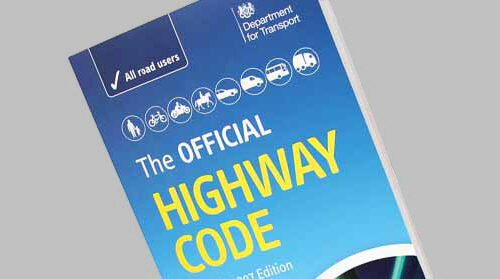Industry reacts to Highway Code proposals

- 22/04/2022
- Posted by: Alan Feldberg
- Category: News
The automotive industry has received the government’s proposed revisions to the Highway Code to accommodate autonomous driving with tentative enthusiasm.
The updates have been announced following a public consultation, and will allow drivers to check emails and watch films and other programmes on built-in display screens while the vehicle is in self-driving mode.
However, using mobile phones behind the wheel will still be prohibited.
RAC head of policy Nicholas Lyes said: “Automated vehicle technology has the potential to make our roads safer by eradicating driver-induced errors – a cause of a great many collisions – and could also make lengthier trips a more enjoyable and less tiring experience. While we’re still some way off truly ‘self-driving’ cars, the journey to get there begins with driver assistance technologies such as automated lane keeping systems, as they’re only focussed on one element of driving.
“It’s vital the Highway Code changes covering automated vehicle technology are crystal clear, setting out exactly what drivers can and can’t do when certain features are engaged otherwise there’s a very real risk that drivers will be confused. This itself could lead to avoidable road traffic collisions – especially if a driver hasn’t taken back control of the vehicle after they’ve been told to.”
Meanwhile, Neil Atherton, sales and marketing director, Autoglass, said: “After a thorough consultation, it’s encouraging to see the Highway Code clarify how people will need to interact with self-driving cars when they hit the road in years to come.
“Much has been made of the dawn of fully autonomous vehicles, but in reality many of these technologies are already in our vehicles. Advanced driver assistance systems (ADAS), especially the windscreen fitted sensors that monitor road conditions and hazards in real time, will need to be fitted in all new cars rolling off the production line later this year, and drivers and the wider automotive industry need to be ready to use and maintain them properly.
“Calibration and recalibration of these technologies is absolutely critical for their effective operation, and if not carried out there’s a risk it could lead to a false sense of security among drivers. Our road tests at Autoglass have shown that correct recalibration has a direct impact on collision probability, which is why we run recalibrations on all windscreen replacements. We would love to see greater emphasis placed in the Highway Code around the maintenance of these life-saving sensors.”



